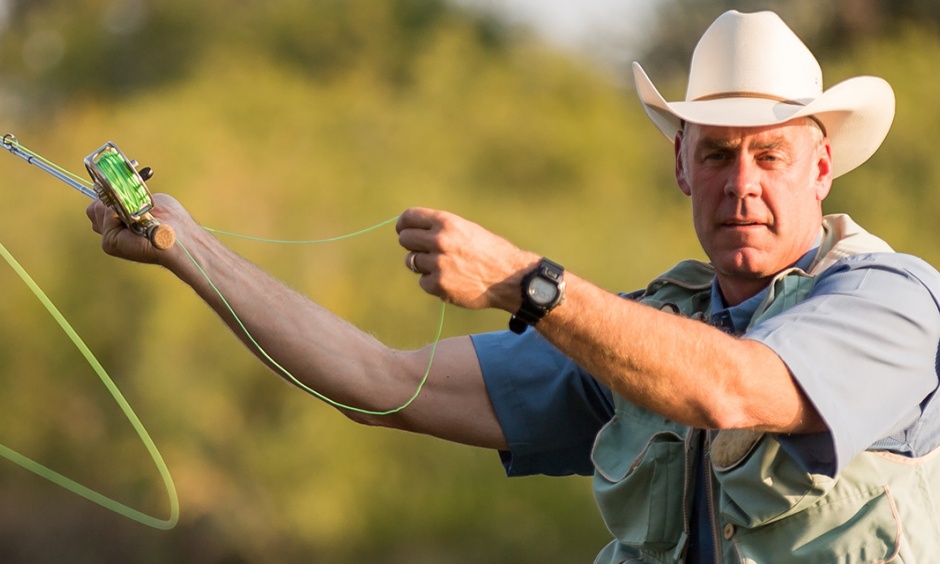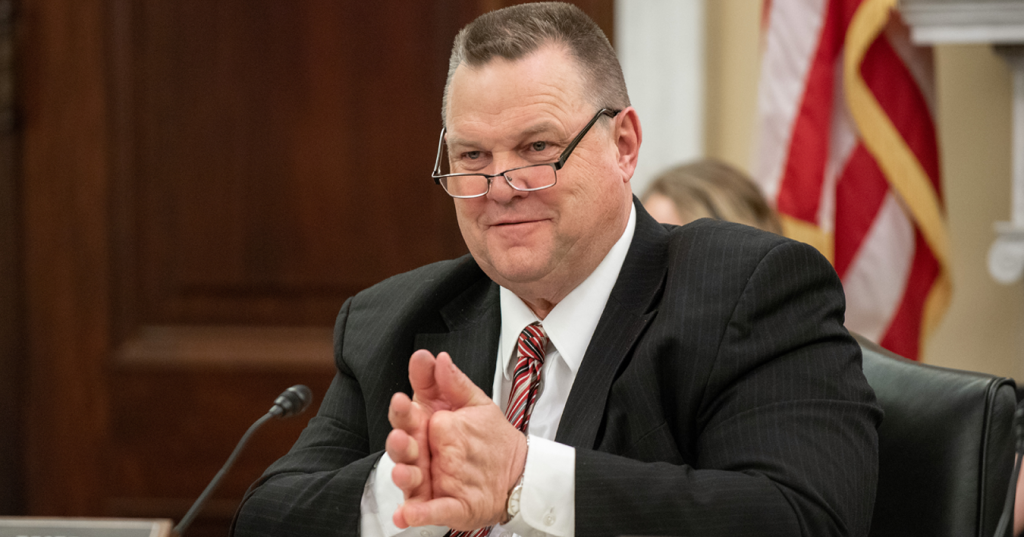I’ve been around politics all my life. I’ve know some great ones and a few scoundrels. I’m enough of a realist to know that all politicians – like all of us – have feet of clay.
Yet, what worries me about our political moment – and I worry a lot – is the willingness of people who I know know better to give into rank political opportunism, even at the risk of undermining democracy.
I also know it’s tough – and some find it impossible – to go against your party or your tribe. It can be lonely being an independent, even if you really truly what to be principled and honest with yourself.
Yet, once you’ve made the accommodation with what you know to be wrong and tried to explain it away, the next accommodation, and the next become easier. You convince yourself that it’s more important to go with the flow, stay in office, and not upset your supporters than it is to do the right thing.
What really worries me is that so many good people in the modern conservative movement have made this calculation. Even if they really, truly know better.
I’ve known one of them for years.
—–
The question before the U.S. House of Representatives wasn’t complicated or partisan. It was a question of whether Congress, in service to its need to investigate in order to legislate, could enforce a lawful subpoena.
What made the issue controversial was the nearly total opposition of House Republicans. These Republicans attempted to stop a resolution referring to the Justice Department for possible prosecution one Steve Bannon, a figure widely implicated in the planning and execution of the pro-Trump January 6 insurrection at the U.S. Capitol.

Bannon invoked a nonsensical reason for refusing to produce for Congress documents and his own testimony. He claimed he was subject to a declaration of “executive privilege” by the former president, even though Bannon is a private citizen who hasn’t worked in the White House since Donald Trump fired him in August of 2017.
The special House committee investigating January 6 said, in essence, wait a minute. It doesn’t work that way. A congressional subpoena is just as valid, just as lawful as any summons any citizen might receive to produce records or appear in court.
Yet, Idaho’s two members of Congress – along with 200 fellow cowards – ignored these facts and in essence said Steve Bannon could break the law. In a way, the vote of Representative Russ Fulcher was to be expected. He actively participated in the plot to reject legally certified Electoral College votes from several states. Fulcher even bragged about his role in the insurrection the very morning the mob stormed the Capitol chanting “hang Mike Pence.”
The vote to let Bannon flaunt a congressional subpoena that is hard to square – actually hard to stomach – is the vote of Representative Mike Simpson. He knows better. It least he once did. The simple truth is Simpson gave in to cowardliness. He’s afraid of Donald Trump. He even more afraid of his constituents.
Simpson violated – Fulcher did, too – his oath of office to defend the laws and Constitution of the United States. And he did it for the smallest, most selfish reason – to protect his job, which has clearly become more important to him than anything else.
That may seem a harsh verdict on a politician who has done some good for Idaho in his long career, but sadly it’s the truth. Simpson has become a metaphor for what has happened to the modern, Trump-infected Republican Party. Consider the congressman’s evolution.
After the “Access Hollywood” tape, Simpson called Trump “unfit.”
The Idaho congressman was more prescient than he could have possibly known when he said as the Trump-Russian investigation continued, “What I’m worried about is, in the early 1970s, politicians like me were standing around saying, ‘Nixon’s okay, he didn’t do anything,’ and look what it led to,” Simpson said. “And every day there is something that adds on to it.”
As Trump railed in the summer of 2017 about Republican failure to repeal the Affordable Care Act (Obamacare), but also repeatedly failed to offer an alternative, Simpson grew exasperated with a president who displayed no ability to grow into the job. “I don’t even pay any attention to what is going on with the administration because I don’t care,” Simpson told one interviewer. “They’re a distraction. The family is a distraction, the president is a distraction.”
Explaining his frustrations, Simpson said, “At first, it was ‘Well yeah, this is the guy we elected. He’ll learn, he’ll learn.’ And you just don’t see that happening.”
When Trump threatened to declare an emergency and divert funds from military construction projects to build his border wall, Simpson pushed back gently. “It’s not the way to do it. I can understand why they’re looking at it,” Simpson told the Washington Post. “I don’t like the idea of pulling money out of defense and military construction and the Army Corps of Engineers. That’s not a good option.”
But when Trump went ahead and declared a national emergency Simpson went along. “I’ll be real honest,” Simpson said, “if Obama had done this, Republicans would be going nuts. That’s just the reality.” Simpson justified his about face on the dubious grounds, particularly coming from a senior House appropriator, that Trump had the authority to usurp the Congressional power of the purse.
On several occasions during the first 18 months of the former guy’s presidency, Simpson seemed to be on the verge of breaking with Trump, yet the break never came and as the 2020 election approached and Trump’s grip on the Republican Party, nationally and in Idaho, grew even stronger, Simpson never again deviated, even a bit, from the Trump line.
That line has now led to Simpson’s vote to give Steve Bannon, a guy who continues to spread lies, encourage violence and who predicted the anarchy of January 6, a pass.
Simpson’s explanation of his vote for Bannon certainly must rank as one of the most disingenuous statements ever penned by an Idaho politician. He might have used the moment to educate and inform about the compelling need to understand who was behind the plot that nearly resulted in an American coup. He might have upheld the rule of law. He did the opposite.
“Pelosi’s Jan 6 Commission has become the partisan circus I wanted to avoid,” Simpson tweeted. “Congress doesn’t get to play law enforcement when it’s politically convenient for the Dems just to score political points.”
Partisan circus? Political points?
What does the congressman think happened on January 6th while he and his colleagues hid from the mob that came for them?
When a Capitol Police officer, Brian Sicknick, died after began assaulted on January 6, Simpson said:
“His family deserves our prayers and his perpetrators deserve prosecution to the fullest extent.”
Congress and the American people are entitled to find out if Steve Bannon was one of those “perpetrators.” If he was involved, he almost certainly has information that leads back directly to the former president.
Mike Simpson, the guy who once saw straight through the rot pervading his party, has, with his Bannon vote – and his refusal to condemn the kooks, insurrectionists and law evaders in his own party – thrown all in with the effort to ignore the attempted coup he lived through. Now he’s helping rewrite the history of what happened.
Simpson’s political calculation was simple, if cynical. If he voted against Steve Bannon, Trump would turn on him. Mike Simpson voted to ignore Steve Bannon’s law breaking to save his political career. He folded.
The pre-Trump Mike Simpson I once knew would be appalled by the post-January 6 version. That this once principled, independent politician now fits so well in the modern GOP tell us how low we’ve fallen.
—–0—–
More reading:
Some of my “carefully” curated reads this week from across the World Wide Web…
SEAL of Disapproval
I’ve long been a big fan of Tom Ricks, a historian and commentator on military history. His recent piece in The Washington Monthly looks at how the United States Navy failed to stop—and Donald Trump championed—a murderous special operations leader.

“Eddie Gallagher’s military and political trajectory is shocking, but it isn’t necessarily surprising. American leaders have a two-decade history of mishandling our wars in the Middle East, and officials have authorized needless violence against our enemies, real and perceived. Gallagher may or may not have been inspired by the dishonesty and brutality that underscored our actions in Iraq and Afghanistan. But his story is certainly a parable for what we did wrong.”
Read the full piece. It may make you mad.
Solar storm confirms Vikings settled in North America exactly 1,000 years ago
Seems that old Chris Columbus was way behind in the race to “discover” the New World. The Vikings beat him by hundreds of years.
“The Icelandic sagas – oral histories written down hundreds of years later – tell of a leader named Leif Erikson and a settlement called “Vinland”, assumed to be coastal North America. But while it is known that the Norse landed in Canada, exactly when they set up camp to become the first Europeans to cross the Atlantic, marking the moment when the globe was first known to have been encircled by humans, has remained imprecise.”
New scientific methods give us much more information. From The Guardian.
Terry Tempest Williams on the Loves (and Appetites) of the Great Jim Harrison

“Harrison tells us insight begins in that place of standing on the precipice of darkness and light. Being human means being stretched between the known and the unknown: the longest day of summer is also a move toward winter, the longest night in winter is a turn toward brighter days. We bow to time and the cycles of change that are beyond our control. Light will come. Darkness will come. We are held in the numinous hours of grace before dawn and after dusk.”
A fine meditation on the late novelist and poet by another very fine writer.
Have a good weekend…and be well.











